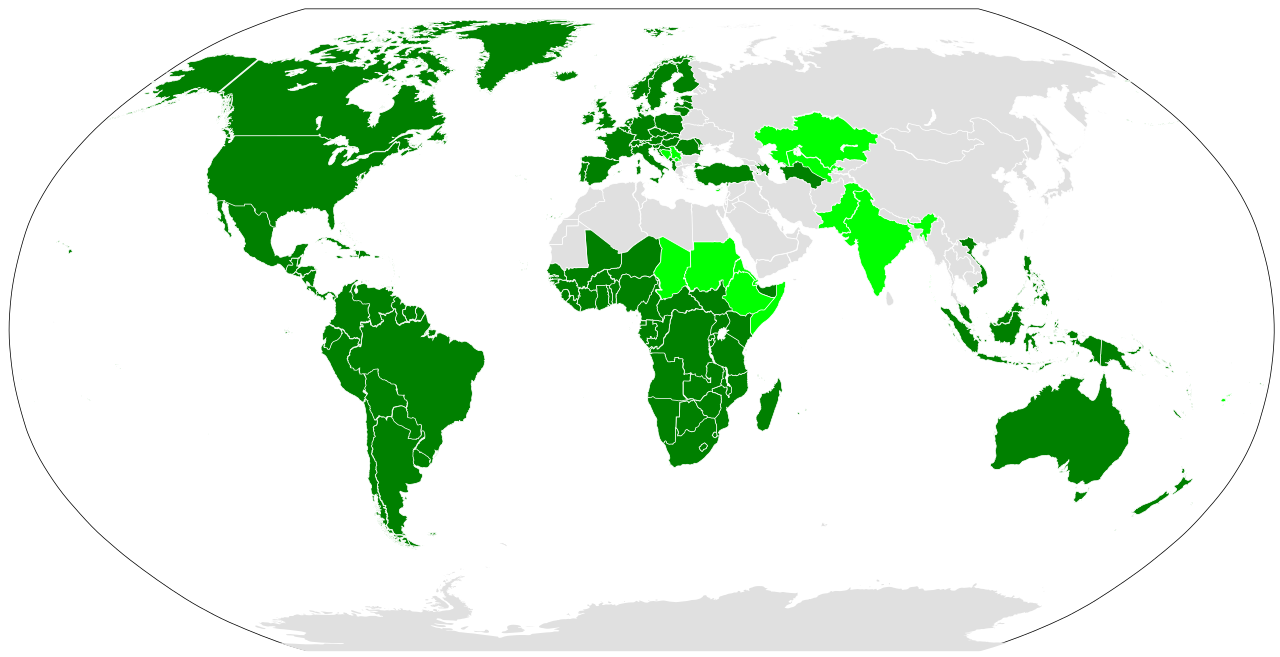Nachtswalbe wrote: ↑Tue Oct 05, 2021 5:50 pm
This thread is for discussion about nationalism, culture wars and the intersection of politics and culture, to match the capitalism/socialism etc. thread
Some people I know not only push for a world government, but also a world culture to match.
Scott Siskind argued it is already occurring: (CW: longwinded, rationalist)
https://slatestarcodex.com/2016/07/25/h ... t-was-won/
Interesting blog entries-- both Alexander's and Caplan's.
However, I think both are deeply flawed by taking it for granted that there are multiple "civilizations" with well defined boundaries, and one is doing much better than all the rest. Or to be more blunt: both are American dudes who have grown up in a world where the US is on top, like it that way, and never had to think hard about what things look like to non-Americans.
This is most clearly seen here:
Alexander wrote:People who complain about western culture taking over their country always manage to bring up Coca-Cola. But in what sense is Coca-Cola culturally western? It’s an Ethiopian bean mixed with a Colombian leaf mixed with carbonated water and lots and lots of sugar. An American was the first person to discover that this combination tasted really good – our technological/economic head start ensured that. But in a world where America never existed, eventually some Japanese or Arabian chemist would have found that sugar-filled fizzy drinks were really tasty. It was a discovery waiting to be plucked out of the void, like penicillin. America summoned it but did not create it. If western medicine is just medicine that works, soda pop is just refreshment that works. ... Coca-Cola spreads because it tastes better than whatever people were drinking before. ...If there was something that outcompeted Coca-Cola, then that would be the official soda of universal culture and Coca-Cola would be consigned to the scrapheap of history.
I mean, this is either incredibly naive, or disingenuous. One, Coca-Cola is a $37 billion corporation, one of the 30 companies that make up the Dow-Jones Industrial Average, also a member of the Standard & Poor 100. An
American company, of course, not a Japanese or Arabian one; it obviously caters to American tastes, though it happens to have wider appeal. Coca-Cola spends $4 billion a year on marketing. It's not easy to compete with such a behemoth.
Two, it's absurd to claim that Coke "tastes better than whatever people were drinking before". People are obviously still drinking coffee, tea, and milk in enormous quantities. Coke outperforms Pepsi, but to think that it's objectively better because of that is simply to worship money: it should be obvious that which drink predominates is highly arbitrary, and subject to huge swings. (If you can successfully predict the next swing, you can make a billion dollars.)
I wonder if he's even aware of any national alternatives to Coca-Cola. In Brazil, for instance, I became fond of guarana. Guarana is a big business in Brazil. A Coke executive would be extremely foolish to think that Coke would obviously win because it "tastes better." In fact Coke does well in Brazil, but the company introduced a guarana soft drink of its own (Kuat).
On the one hand, universal culture is objectively better. Its science is more correct, its economy will grow faster, its soft drinks are more refreshing, its political systems are (necessarily) freer, and it is (in a certain specific sense) what everybody would select if given a free choice. It also seems morally better.
It's hard to understand why someone writes this kind of boosterism. He talks quite a lot about two Western practices that were
very much not morally better than everyone else: slavery and colonialism. He is surely aware that many people, inside and outside the West, have severe moral criticisms of it; he's surely aware that not all of them can be attributed to "backwardness" or "non-rationality" or whatever he thinks resists "universal culture."
I understand that his thesis is that "universal culture", though it originated in and is still dominated by the West, is different from and superior to "Western culture". But when it comes to things like colonialism, it seems like a rhetorical technique to make everything he likes about the West "universal" and to dismiss the things he doesn't like as "Western".
His point about "freer" political systems is maybe not so well thought out. One, is he not even aware that for most of the last century, the West created and supported dictatorships, and preferred them to freer systems? Two, did China just disappear from his history books? I am no fan of its authoritarian system, but its massive and sustained growth makes nonsense of his claim that "universal culture" favors political freedom.
I do think he has some good points about e.g. medicine. But I think he overestimates how rational and bias-free Western science is. (As just one example, medical manuals are usually written assuming that the patient is white.
This has a real effect on diagnosis of many conditions.)
Finally, I don't see that he's thought about how different the "Western/universal" gap is compared with, say, the "East Asian/universal" gap. Yes, we rejected a lot of the common ideas of the year 1600. But there is a cultural continuity, and even an institutional continuity, that doesn't exist that way elsewhere.
